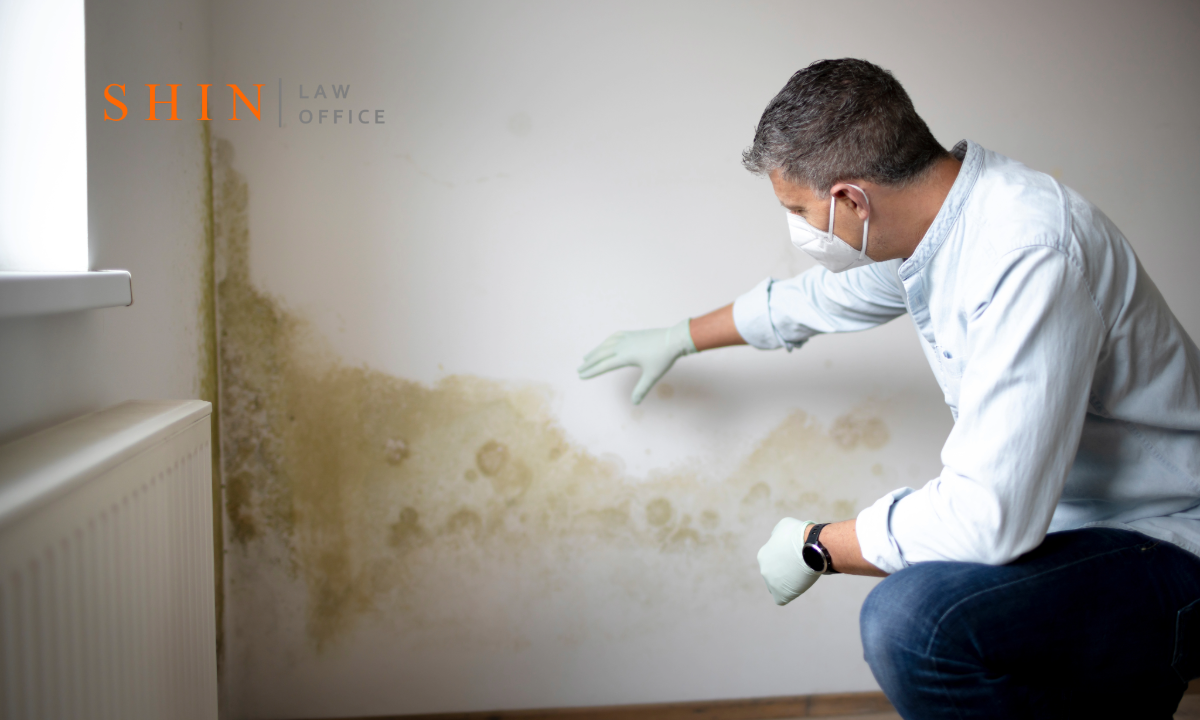By Anthony I. Shin, Esq. | Attorney at Law | Toxic Torts | Shin Law Office
Understanding the Seriousness of Mold Exposure
When I meet tenants who have discovered mold in their Arlington apartments, the same feeling often comes first: disbelief.
You expect your home to be safe and well-maintained. Instead, you’re breathing in something toxic every day.
Mold is not just unpleasant to look at or smell; it can cause serious health problems, especially for children, the elderly, or anyone with asthma or a weakened immune system.
Mold spores can trigger respiratory infections, constant coughing, watery eyes, or even more severe allergic reactions.
Long-term exposure to toxic molds like Stachybotrys chartarum, often called black mold, can cause neurological symptoms, fatigue, and chronic sinus issues.
The danger is that it often hides behind walls or under carpets where you can’t see it until it spreads.
Why Mold Problems Are So Common in Arlington Rentals
Aging Apartment Buildings and Poor Maintenance
Many apartments in Arlington were built decades ago and have older plumbing, aging HVAC systems, and leaky windows.
Over time, these minor issues turn into big problems. When moisture isn’t controlled, mold finds its way into drywall, ceiling tiles, and insulation.
Landlords sometimes treat these leaks as minor, but ignoring them creates the perfect conditions for mold to grow.
High Humidity and Inadequate Ventilation
Arlington’s humid climate, especially in the summer, adds to the problem.
Bathrooms and kitchens without proper exhaust fans or ventilation trap moisture, creating a breeding ground for mold.
If the air conditioning system is old or filters are never changed, spores can circulate through the entire unit.
When Landlords Fail to Act
Your Right to a Safe and Habitable Home
Under Virginia law, landlords must keep rental properties in a condition that meets health and safety standards.
That means fixing leaks, repairing damaged walls, and removing mold when it appears.
Failing to fulfill those responsibilities can make a landlord legally liable for the harm caused by their negligence.
If your landlord dismisses your complaints or refuses to inspect, that’s a violation of your tenant rights.
You are not required to live in unsafe conditions.
The law recognizes your right to a habitable home, and mold falls squarely under that category.
What I Tell My Clients to Do First
When mold appears, I always advise tenants to start by documenting everything.
Take clear photos, note dates, and save all communication with your landlord.
If possible, request written acknowledgment of your report.
If your landlord continues to ignore the problem, this documentation becomes crucial evidence.
Some clients also choose to get a professional inspection or mold test.
These reports can identify the specific type of mold and the level of contamination, significantly strengthening your case.
It’s essential if medical issues have developed because of exposure.
Your Legal Options in Arlington
Filing a Complaint or Taking Legal Action
If your landlord refuses to take corrective action, you can file a complaint with Arlington County’s housing division.
This often prompts an inspection and can lead to official citations.
However, when the problem is severe, legal action may be necessary to protect your health and recover damages.
Potential Compensation
You may be entitled to:
- Medical costs for mold-related health conditions
- Repair or replacement of damaged personal property
- Temporary relocation expenses if your home becomes uninhabitable
- Compensation for distress and reduced quality of life
Landlords who knowingly neglect mold problems may also face penalties or court orders requiring immediate remediation.
How I Help Tenants Protect Themselves
When I represent tenants in toxic mold cases, my focus is on ensuring they’re heard and protected.
Mold exposure cases are complex because they involve health, property, and contractual law.
I take the time to gather the right evidence, coordinate expert inspections, and hold property owners accountable under Virginia’s landlord-tenant laws.
You shouldn’t have to fight for the right to breathe clean air.
My job is to make sure you don’t have to face that fight alone.
Taking the First Step
If you’re living with mold in your Arlington apartment and your landlord refuses to help, don’t wait for the situation to get worse.
Mold spreads fast, and your health should never be the price of someone else’s negligence.
Reach out to a qualified attorney who understands toxic tort cases and can guide you through the following steps.
You deserve a safe, healthy place to call home, and the law is on your side.
— Anthony I. Shin, Esq.
Principal Attorney | Shin Law Office
Call 571-445-6565 or book a consultation online today.




